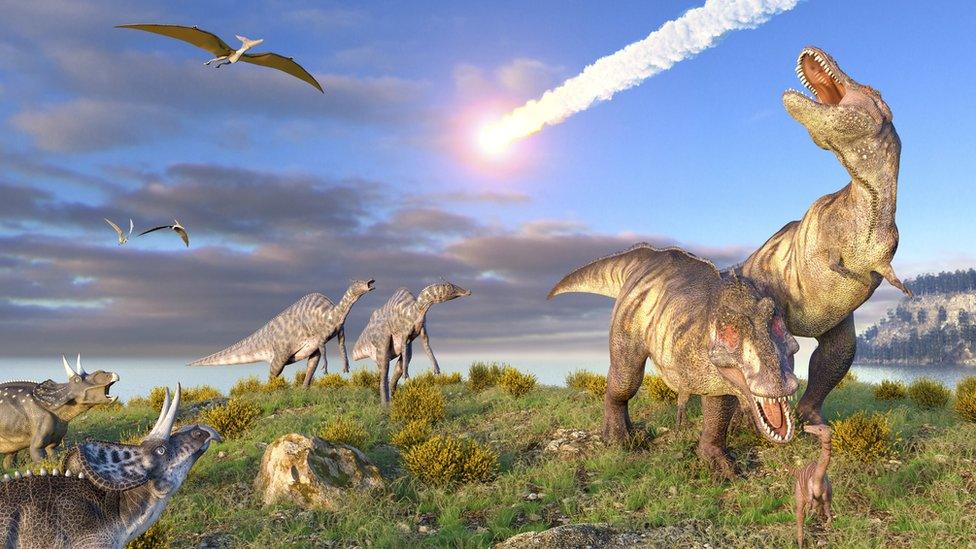Climate change: Did it affect dinosaurs?
- Published
- comments

The dinosaurs were wiped out by an asteroid 65 million years ago, but a new study suggests that there were already in decline
A new study from an international team of scientists suggests that climate change could have affected dinosaurs and pushed them into decline, long before their eventual extinction from an asteroid.
The study, which includes a scientist from the University of Bristol, claims that dinosaurs experienced higher rates of decline 76 million years ago.
The team proposes that there was a global cooling on earth, where temperatures dropped 7C - this left dinosaurs that preferred warmer weather at a disadvantage. 76 million years ago this climate change would have been happening as a result of natural occurrence, rather than as a result of human activity like it is today.
It's thought that plant-eating dinosaurs would have disappeared first, which would have an impact on the ecosystem - meaning that other families of dinosaurs would have been disturbed by the chain of events.
If you are a fan of dinosaurs, make sure you take our dino-themed quiz at the bottom of the page!
Triceratops - the study claims that plant-eating dinosaurs would have been most effected by the change in climate
Professor Mike Benton, from the University of Bristol, said: "It became clear that there were two main factors, first that overall climates were becoming cooler, and this made life harder for the dinosaurs which likely relied on warm temperatures."
The study goes on to say that the loss of herbivores (plant-eating dinosaurs) would make ecosystems that some dinosaurs lived in unstable - and this effects other dinosaurs who are in that ecosystem.
The Tyrannosaurus Rex is thought to be one of the biggest dinosaurs to roam the land
The team looked at six dinosaur families through the cretaceous period, ranging from 150 to 160 million years ago. The data here suggested that all these species were evolving and not slowing down.
Lead author of the study, Fabien Condomine, said: "Then, 76 million years ago, they show a sudden downturn. Their rates of extinction rose and in some cases the rate of origin of new species dropped off."
This means that the dinosaurs that showed no signs of slowing down in their evolution, suddenly started having higher rates of extinction, and fewer rates of new species - so the study claims that this could be evidence of them being affected by the change in climate.
Why don't you take our quiz to find out which dinosaur you are?
If you can't see the quiz at this top of this page, click here.
- Published30 June 2021
- Published30 June 2021
- Published30 June 2021
